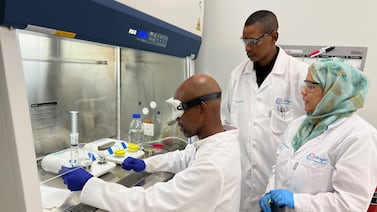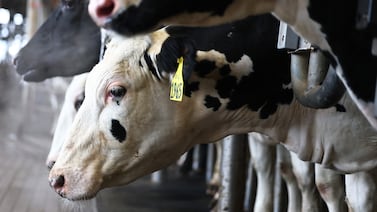While Congress fails to stave off cuts to HIV care, community leaders in Mississippi and beyond race to limit the damage.
Researchers laid off in April were putting the finishing touches on in-depth HIV surveys that guide treatment and prevention. Some staff have been reinstated, but data remains in limbo.
Countries that produced their own vaccines in the Covid-19 pandemic had first dibs on the shots. While the U.S., home to Moderna and Pfizer, rolled out second doses of mRNA vaccines in 2021, hundreds of thousands of people in countries that didn’t manufacture vaccines died waiting.
A disruption in federal funds has jeopardized HIV testing and outreach in Mississippi, and researchers warn of a resurgence of the epidemic in the region.
Preventing and detecting bird flu infections among farmworkers is a key defense against a potential pandemic. Immigration raids and threats have undermined these efforts, researchers say.
Health officials expect the outbreak to worsen because of low vaccine rates and undetected infections. Vaccine misinformation and new laws may make such situations more common and harder to contain.
Delays in urgent CDC analyses of seasonal flu and bird flu, and the agency’s silence, will harm Americans as outbreaks escalate, doctors and public health experts warn.
Public health practitioners warn such outbreaks will become more common because of scores of laws around the United States — pending and passed — that ultimately lower vaccine rates.
The unprecedented freeze on the Morbidity and Mortality Weekly Report has sparked concerns about political meddling.
Trump has issued executive orders that may signal the end of the U.S. holding considerable power in determining the direction of global health policies and programs.











